Spotlight On – ECA Reconciliation Symposium, Darwin
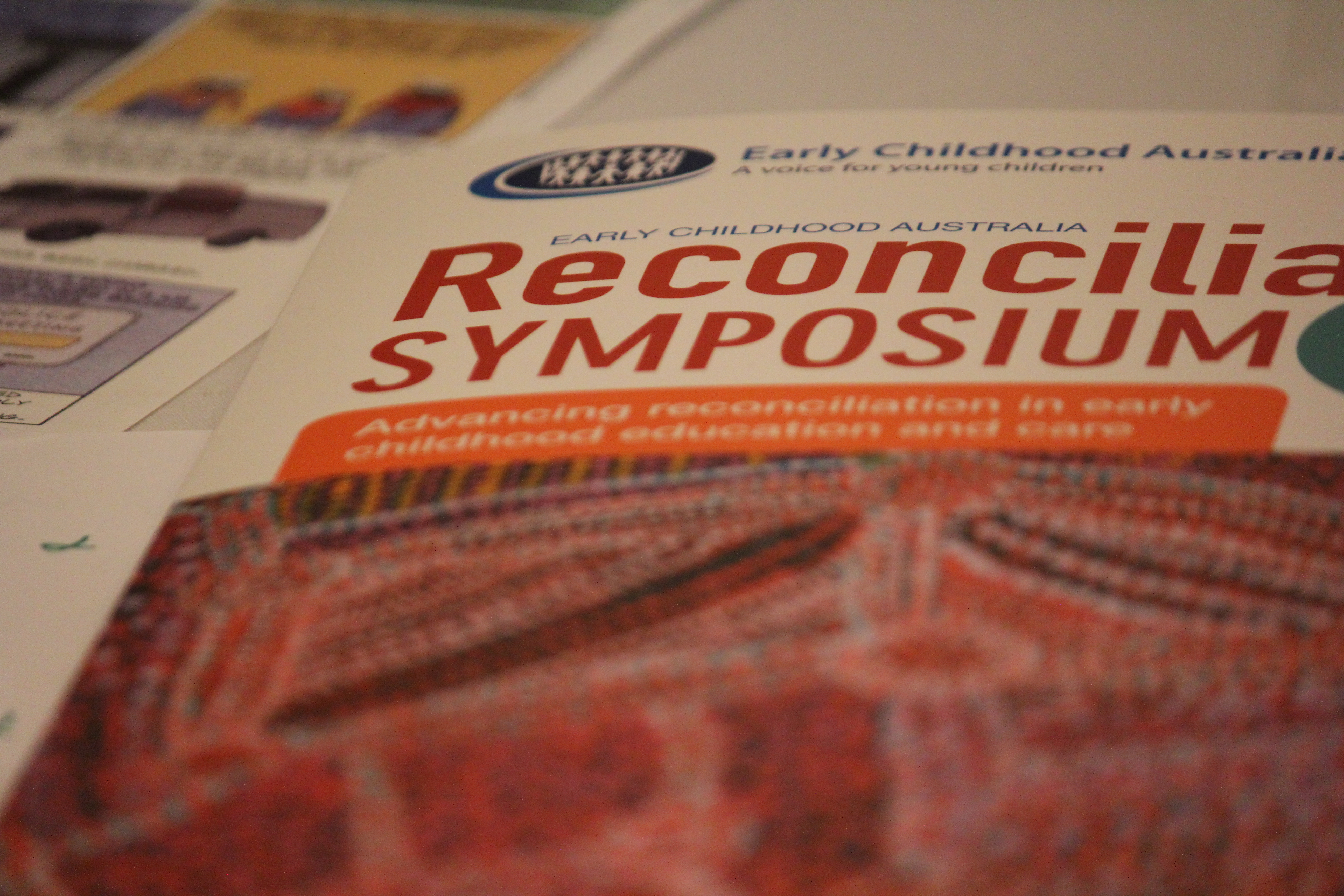
The annual ECA Reconciliation Symposium brings the matter of reconciliation in early childhood into the spotlight and works towards a better future for all Australians.
Earlier in May, Narragunnawali team members joined over 200 educators at the highly interactive ECA Reconciliation Symposium in Darwin.
With access to various speakers plus new presenters and ideas, the symposium posited new and vibrant perspectives on the intersections between reconciliation and early childhood education and care.
The program consisted of a 3-day agenda; Pre-symposium Day 0 included a masterclass about reconciliation in action delivered by our Regional Engagement Program Partners as well as a cultural tour of Darwin that looked at the idea of connecting for change and being on Country.
Day 1, the first formal day of the event, asked its attendees to reflect on ‘What is reconciliation?’
Reconciliation Australia’s CEO Karen Mundine gave a keynote address, calling for action in education towards authentic and brave reconciliation.
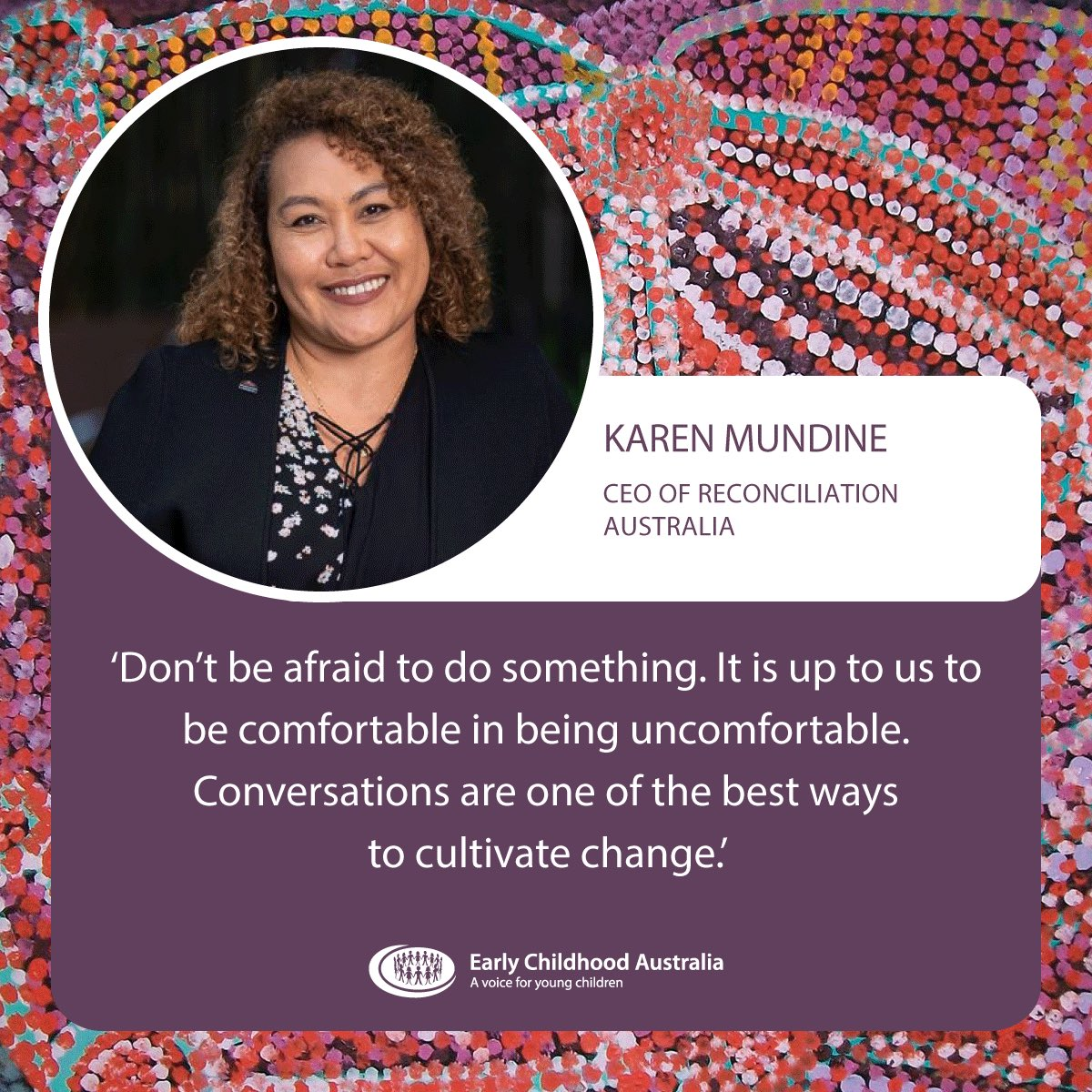
“Growing up as a Bundjalung woman from the Northern Rivers of NSW, and now living and working on Gadigal Country, it has been my Elders and the stories of my ancestors who have taught me about the power of determination, about creativity in the face of adversity, and about having the courage to be brave; to make change.”
“It’s a challenge to all of us – individuals, families, communities and government – to Be Brave and tackle the unfinished business of reconciliation, so that together we can Make Change.”
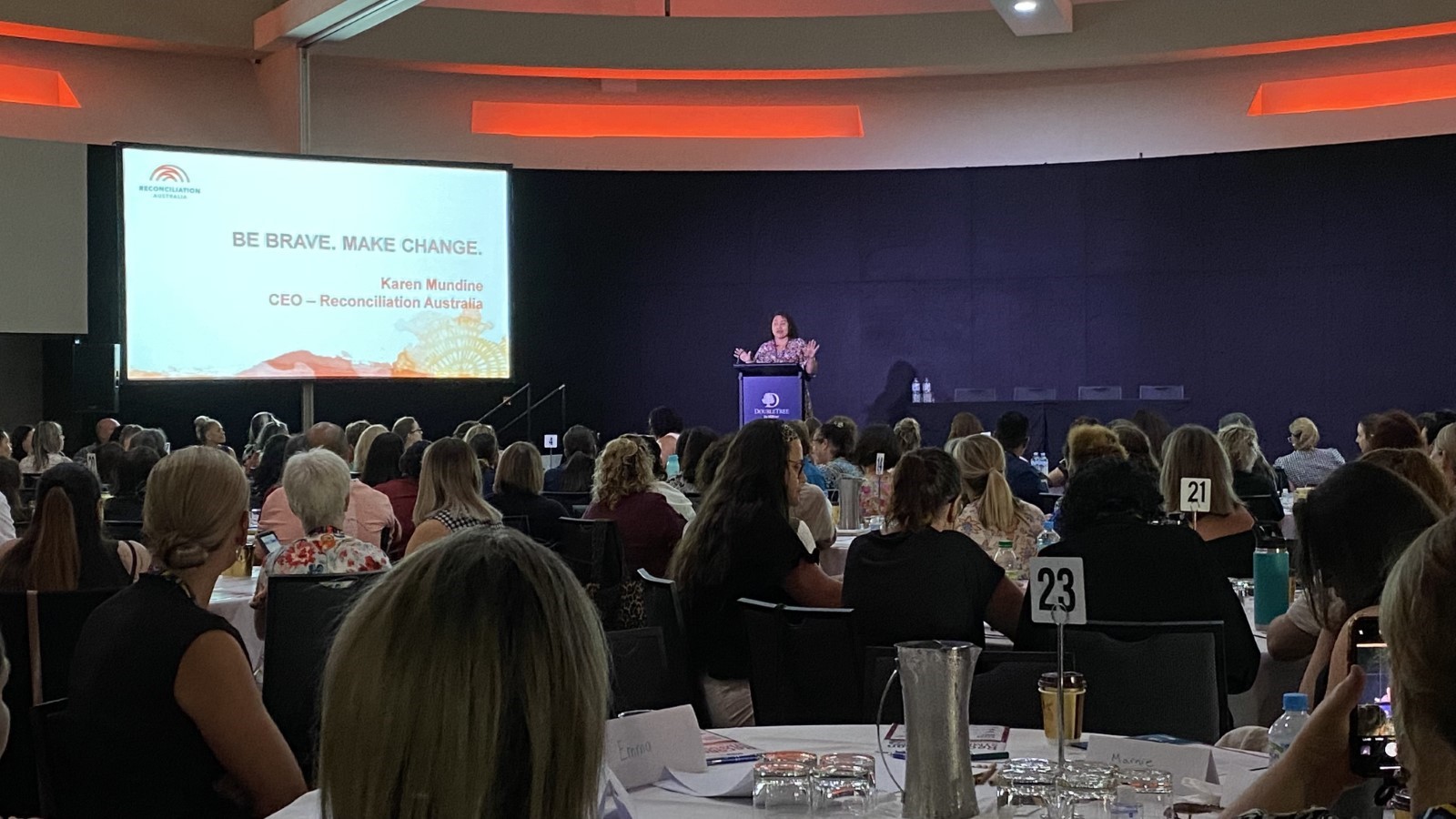
Above: Karen Mundine addressing the ECA Symposium on Day 1.
The closing keynote address was delivered by Leanne Liddle, NT State Recipient Australian of the Year 2022. Her address characterised and contextualised the state of reconciliation in Australia, advocating for leaders and government to deliver the promise of a reconciled state.
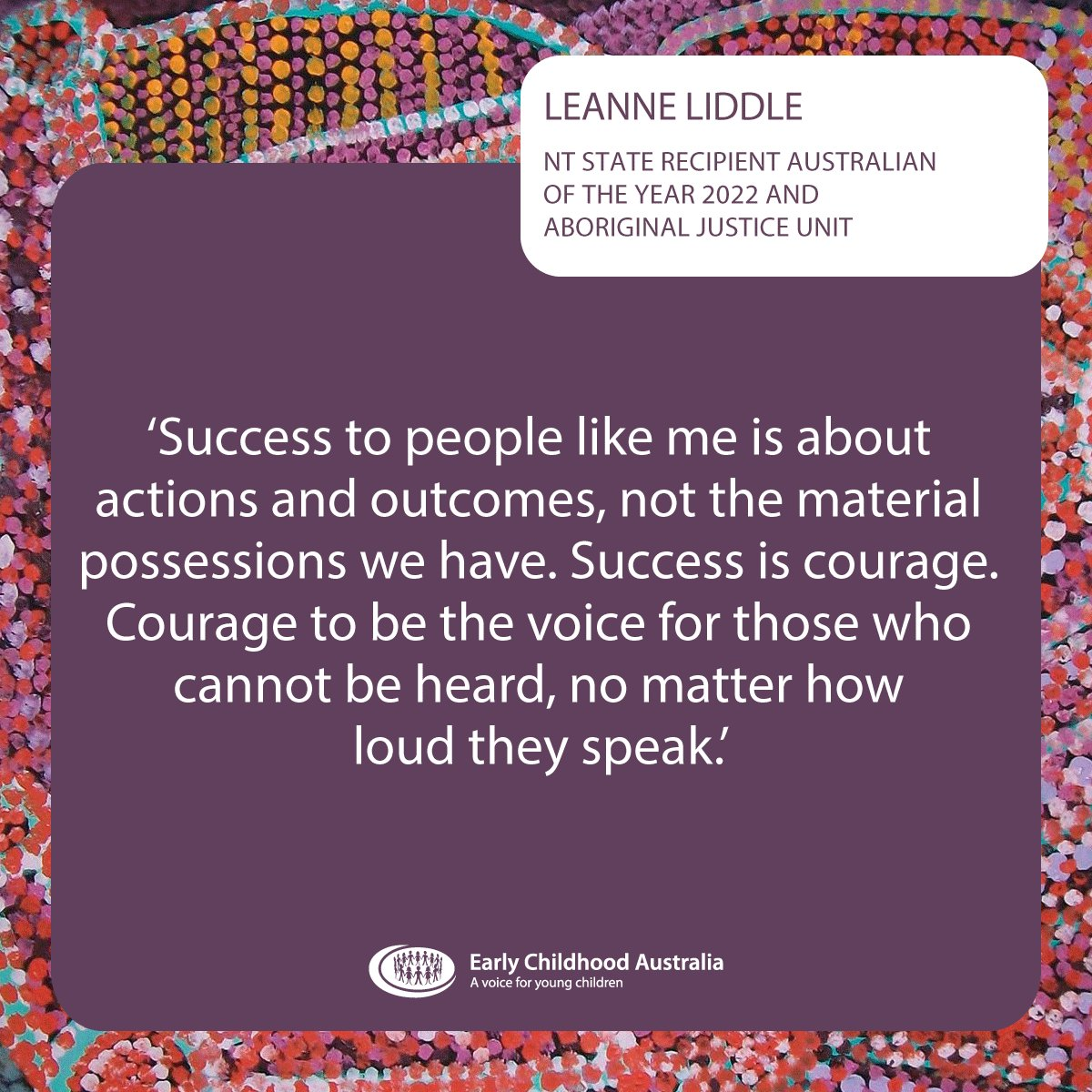
The agenda for Day 2 thematically posed the question of ‘How do we progress reconciliation’?
Presentations on day 2 highlighted national programs like Narragunnawali which support reconciliation practice.
The Narragunnwali 2021 Awards winners and finalists shared their stories on their own continuing reconciliation journeys in their respective schools and services towards driving reconciliation at the whole-school level.
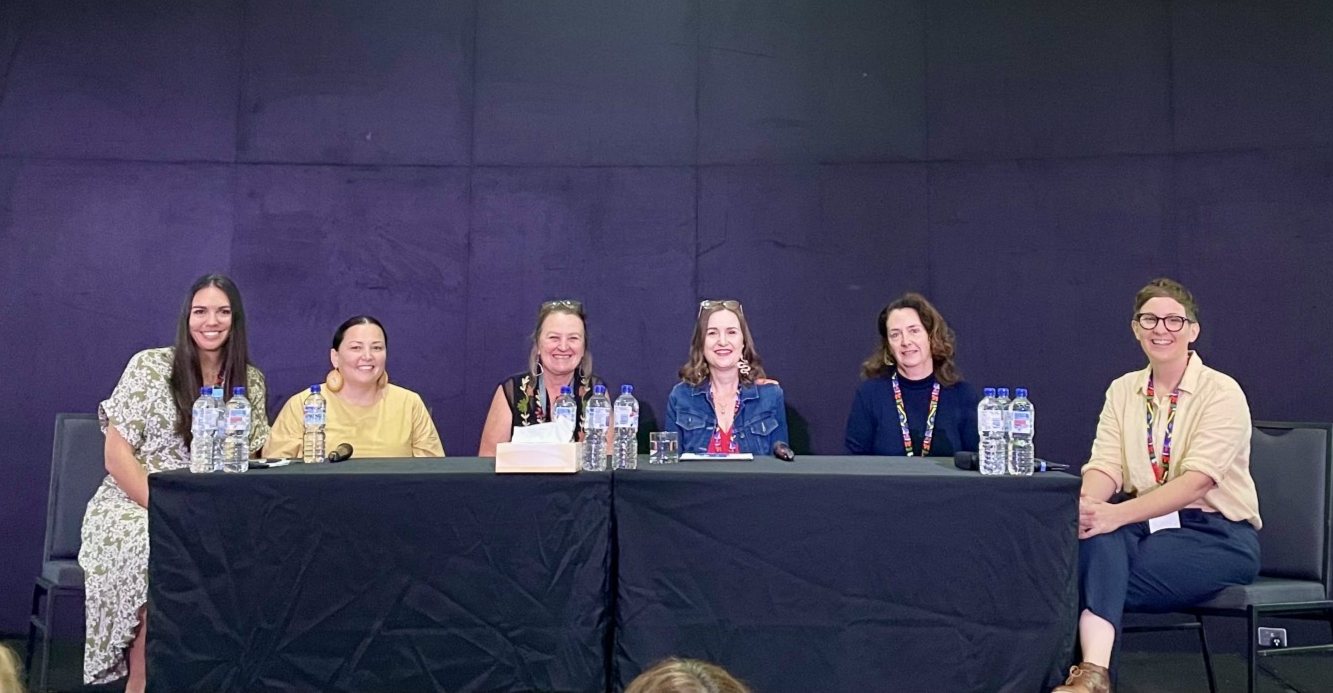
Above: Alanna Raymond (Reconciliation Australia), Tammy Anderson (Briar Road Public School), Ann Slater (Balnarring Pre-School), Pamela Chatfield (Mosman Park Primary School), Bridget Jenkins (St Virgil’s College) and Tessa Keenan (Reconciliation Australia) on Day 2’s Narragunnawali: Reconciliation in Education Panel Discussion
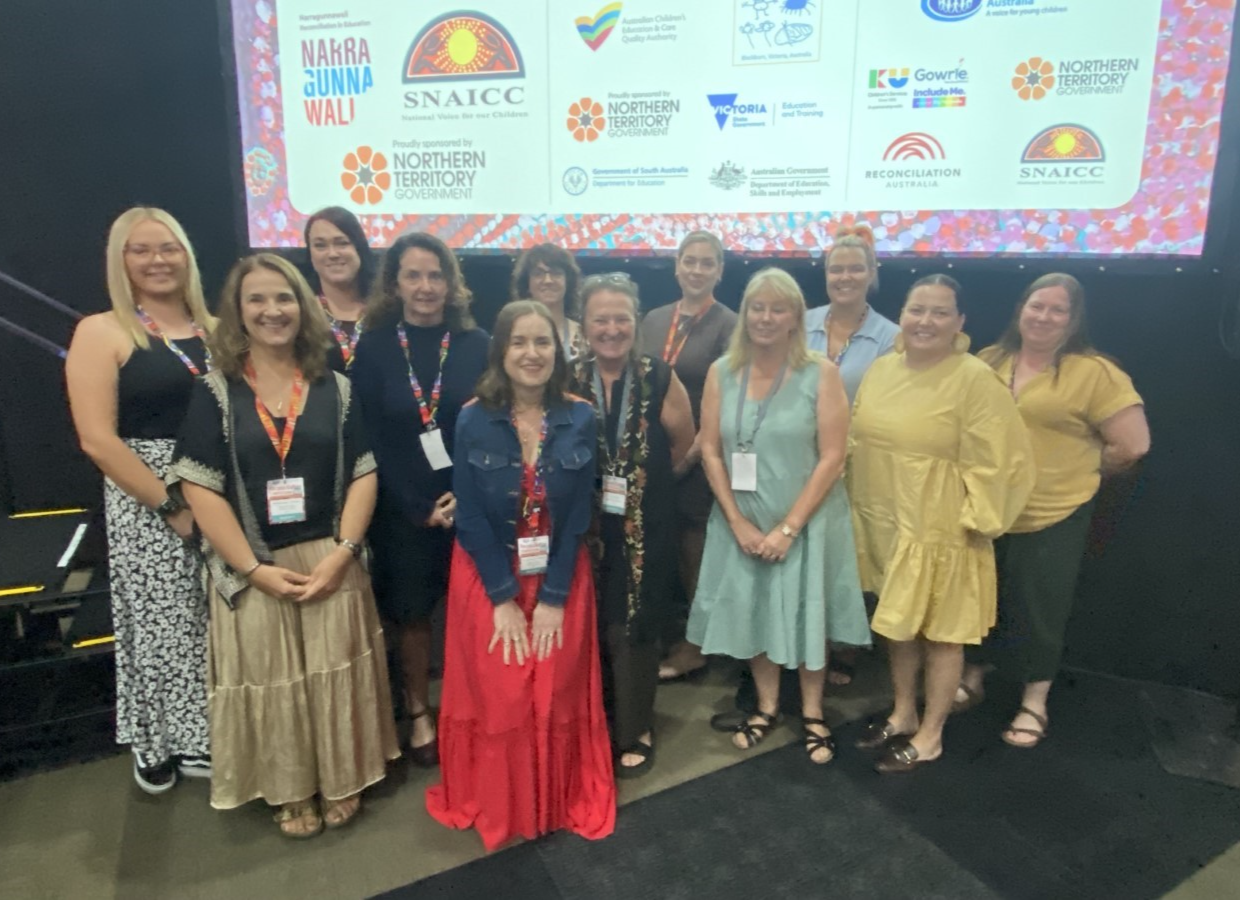
Representatives from the 2021 Narragunnawali Award Finalists came together at the ECA Reconciliation Symposium in Darwin.
Above:
Jill White & Ann Slater Balnarring Pre-School
Jaymi Kendall & Natasha Jones from Tumut Community Preschool
Laura Reiters & Jessica Catt from St Peter’s Girls ELC
Natalie Campbell & Pamela Chatfield from Mosman Park Primary School
Tammy Anderson & Jessica Scott from Briar Road Public School
Sandra Mazengarb & Bridget Jenkins from St Virgil’s College
Following the panellist session, Stephanie Woerde and Christine Wallwork of Reconciliation Australia delivered an exciting session on developing, implementing and refreshing a Narragunnawali RAP.
In this session, we were reminded how, in the context of progressing reconciliation through RAP processes, it is, nonetheless, ‘important to remember not to lose [cultural] safety in being brave when making change’ - Stephanie Woerde, Narragunnawali.
Genevieve Neich and Alanna Raymond from the Narragunnawali team then delivered a workshop about how professional learning, unlearning and relearning processes are important to both individual and institutional change towards reconciliation.
The closing keynote address was delivered by a co-author of Reconciliation—a two-way journey Leonie Norrington.
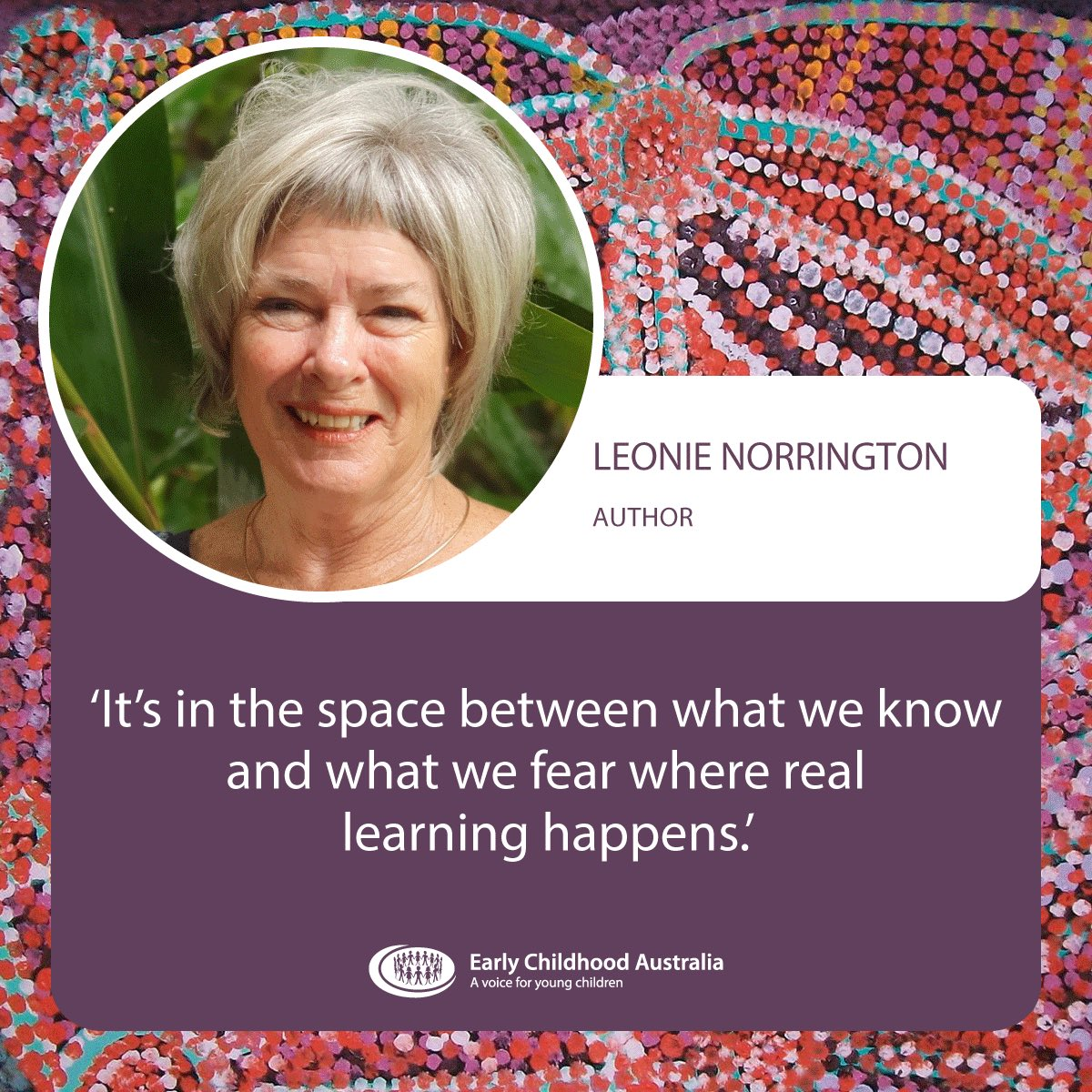
Overall, the symposium was an excellent opportunity for all attendees to take stock and reflect on their own journeys towards reconciliation, personally, professionally and collectively.
It challenged all present towards new understandings of the state of play within Australia, where we are at, and where we need to go to affect real and pertinent change.
It was agreed by both presenters and audience members alike, that education of course has a critical role to play in progressing the status of our nation towards an authentically reconciled state.
You can read more about the work of ECA here and more about their place in reconciliation space here.


